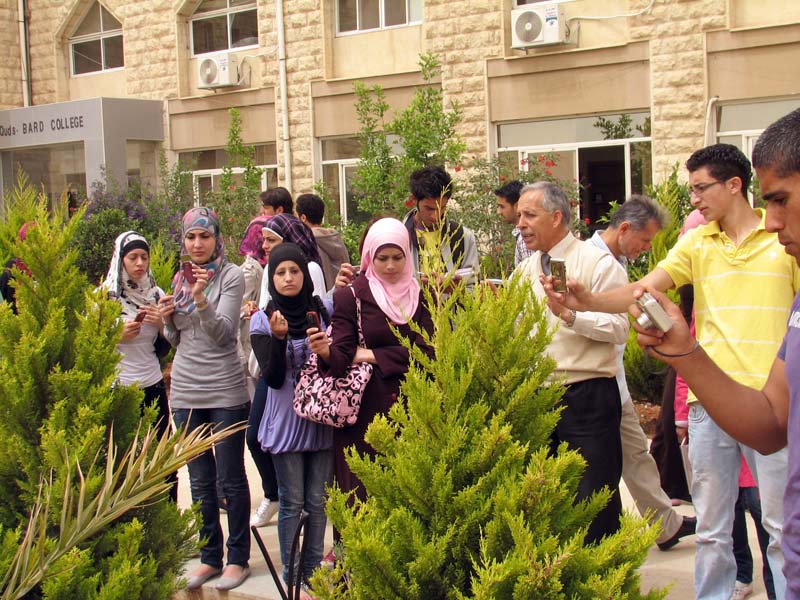Communications
FUNCI in Syria and Palestine
Last March, a delegation of the Foundation of Islamic Culture (FUNCI), of Madrid, travelled to Syria and Palestine in order to follow-up the projects that the Foundation implements in the frame of the Program of international environmental cooperation Med-O-Med.
First the members visited Syria, the capital, Damascus, and also the historical city of Aleppo, where the project is being developed. The project consists in the accomplishment of a botanical garden of andalusí style, with diverse pedagogic, cultural facilities for environmental sensitization, in Al-Hadiqa Public Park. During their stay in the Syrian capital, they attend different meetings with associations as SEA (Syrian Environmental Organization) and ACSAD (Arabic Centre for the study of arid zones and dry lands), with the aim to initiate relations of work that assure the correct execution of the projects that the FUNCI carries out in this country together with the local actors, and with the support of the AECID (Spanish Agency of International Cooperation to the Development). The delegates of FUNCI took advantage in addition of this stay to visit different gardens and parks of the city, in order to achieve a major approximation to the culture and the local art, and to include them in the development of the current project.
Later, in the visit to Aleppo they guarantee the collaboration of the Town hall in the project MED-O-MED, thanks to the meeting supported with the Dr MAAN CHIBLI., mayor of the city, who received the delegation of FUNCI, and showed his interest for the current project and the future actions that are planned to be implement in the city. The members of the FUNCI came in addition to Aleppo’s University, where the Prof. MAHMOUD KASSEM, Vice-president of administrative affairs, also showed his support to the project and assured them the collaboration of different departments of the university in the development of the above mentioned activity.
The space
After the meetings, the technical personnel of the FUNCI could estimate the colonial design of the garden Al-Hadiqa inaugurated in 1947. The park is in Aleppo’s main downtown and has a daily very important activity due to its privileged situation, since it is a common place of step of many pedestrians. There, they could contemplate the sign of identity of this space: the dancing fountain, a sound and lights show, which together with the lighting of the rest of lagoons and fountains, creates a pleasant experience of the night walk along the park.
After the visit to Syria, the delegation of the FUNCI moved to the city of Jerusalem, where they implement the follow-up of other MED-O-MED project, in Al-Quds’s Palestinian University in West Jerusalem. In the campus of this University and in the frame of the initiative, which consists of creating the first botanical Palestinian garden, the FUNCI collaborates with the construction of an andalusí style garden.
At the arrival to the University, the Spanish delegation was welcomed by the DR. KHALED SAWALHA, teacher of botany, and by the DR. IBRAHIM ABU AEMAR, teacher of Archaeology, who developed his PhD in the gardens of the Alhambra. They could visit the andalusí garden, which first phase of construction has concluded, and the rock garden, that it consists of a collection of medicinal and aromatic plants native from the Palestinian mountains.
After visiting the university, the delegation of the FUNCI moved to Bani Naim, a small Palestinian city near Hebron, in which the Palestinian hosts and members of the Town hall showed them two stations of biodiversity that develop labours of environmental sensitization with children and youth and that in addition serve as place of leisure and playtime for the inhabitants of the zone.
Before returning to Spain, the FUNCI signed the collaboration with Al-Quds’s University by an agreement that will assure the correct development of the project in progress, and the future activities that will be carried out in defence of the nature and biodiversity conservation in the Palestinian territory.


